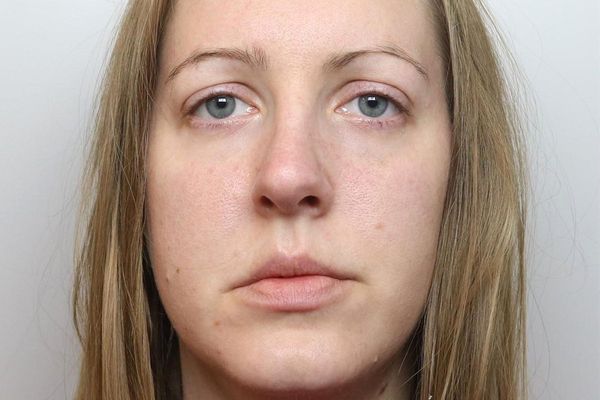
I was walking down Lambeth Palace Road, on the way to make a shared statement against antisemitism, anti-Muslim hatred and all forms of racism, alongside a senior imam and the archbishop of Canterbury, when a young woman stopped me. “I’m so relieved to see you here with your skullcap on,” she said. “I’m Jewish and I’m so afraid.”
Figures published on Thursday by the Community Security Trust, showing a soaring rise in antisemitism, five-fold in some places, are not mere statistics. They’re about lives, schoolchildren, students, Jewish people across the whole of society, including Holocaust survivors, who’ve felt isolated, shunned, blamed and targeted since the horrors of 7 October. This has nothing to do with their views. I have congregants who feel passionately supportive of Israel, or utterly distressed at the suffering of Palestinians caught between Israel and Hamas; or, like many of us, both these emotions at once. That’s not the issue. The target has been Jews, any Jews.
Recently, a grandmother leaned over to tell me quietly: “I’m so upset. My granddaughter has just had a text from her best schoolmate, ‘I can’t be your friend any more.’” It’s not untypical. Whether it’s because of the hatred poured out over social media, or peer pressure, or the need to be “cool”, pupils have been cut off by their friends. They were fellow classmates; suddenly they’re “Jews”.
The same applies on campus, except that here many students have had to walk daily past encampments of fellow students, some of them hostile, protesting against the war in Gaza. One even needed personal security for speaking up on behalf of their Jewish Society. Several have shown remarkable courage. “When we came under attack for being Jewish, I told my friends not to hide their Star of David but to wear it openly. Then we felt strong again.” Often living far from home, students don’t have the daily support of their families, or the solidarity of community. As a rabbi, I worry most about those who are alone.
Adults have had varying experiences. “I don’t feel safe on public transport,” a colleague told me. “I wear a hat over my skullcap more often than I used to,” another said, “but I hate hiding who I am.”
Many workplaces have been politicised, to the detriment of collegiate relationships. Widespread training is needed on how to manage shared spaces, including staffrooms, corporate offices and hospitals, so that those employed there can work closely as fellow professionals dedicated to their shared responsibilities, without prejudice and identity politics poisoning their workplaces. My local MP, Mike Freer, received death threats that he believed were linked to his support of the Jewish community.
One friend found himself so icily blamed and shunned by the very charity he’d co-founded that he had little other choice than to leave. A therapist sought my advice about the targeted, personalised, vicious intimidation she faced from once-close colleagues online.
Invited to address the staff of the Association of Jewish Refugees, I asked if elderly clients were feeling retraumatised, the horror of their experience in Nazi Europe reawoken. The answer was “yes”.
I’ve heard the same sad line many times: “I thought I was at home in the UK. Now I know that I’m not.” We’re Jews, British Jews, but for many, “British” has moved far back into second place. Stephen Fry got this brilliantly right in his Alternative Christmas Message. In the most English of poses, by the fireside with his cup of tea in hand, he said it as it was: “One truth about myself … that I never thought for one single second would ever be an issue about which I had any cause to worry in this country, was that I’m a Jew.”
“How’s it been for you?” friends ask me. Working mostly within the community, I’m protected from the stings that so many around me are suffering. I also want to acknowledge the moving letters of solidarity I’ve received from Christian colleagues, the hugs I recently got from two imams at a rally, the work of Hope Not Hate and Together for Humanity.
Where does this leave the Jewish community now? We pray for an end to the fighting in the Middle East, the safe return home of the hostages. But we doubt that here in the UK there will be a complete return to the status quo ante. Yet we’re not in retreat from our synagogues, schools and institutions. We’re determined to draw strength from our faith; Judaism has a millennia-long tradition of deep resilience. Our communities are strong. We intend to live our Jewish life in depth.
Not only that, in the face of what the prime minister has called out as “far-right thuggery”, we are determined not to stand idly by. We stand side by side with our Muslim neighbours, with refugees, such as my parents were a generation ago, and with all minorities under threat. This is despite a leaflet circulating locally last night calling on people to protest against a threatened far-right rally with the words: “Get fascists, racists, Nazis, Zionists, and Islamophobes out of Finchley.” Evidently there are people who think that insults that target Jews are OK, because, somehow, that isn’t racism.
Yet as Jews, we know as well as anyone that an attack on the dignity, freedom and security of any one group of people is an assault on our entire society. We won’t let racism win.
Jonathan Wittenberg is a senior rabbi of Masorti Judaism
Do you have an opinion on the issues raised in this article? If you would like to submit a response of up to 300 words by email to be considered for publication in our letters section, please click here.







